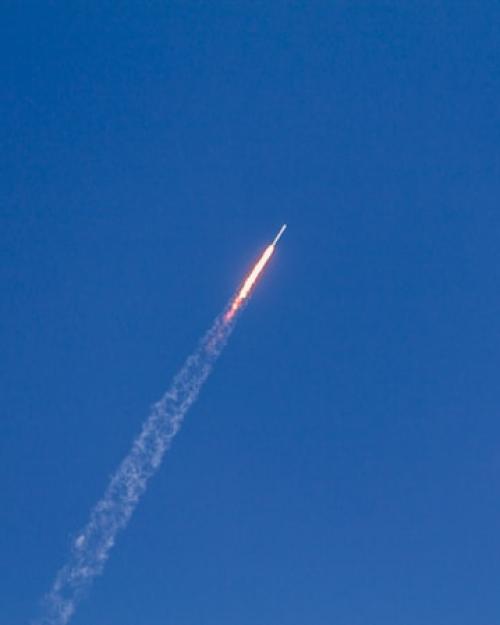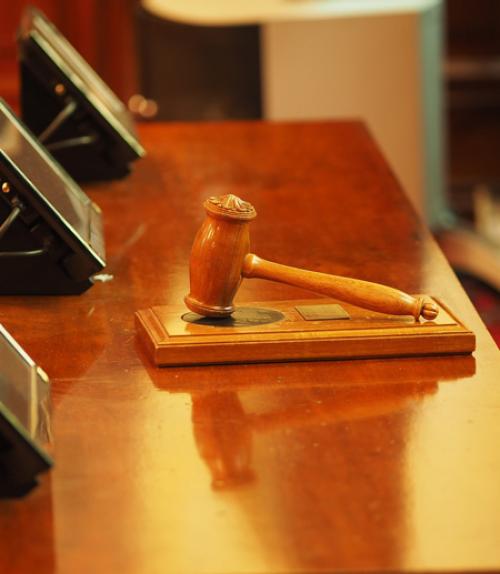Is the pen really mightier than the sword? Specifically, do laws and treaties have the power to stop armed conflicts before they begin?
That is the question on the table at the next Einaudi Center Lund Debate, “Can War Be Prevented by Law?,” March 1 at 4:30 p.m. in Rhodes-Rawlings Auditorium, Klarman Hall.
Guest panelists are Yale University law professors Oona A. Hathaway and Scott J. Shapiro, co-authors of the 2017 book “The Internationalists: How a Radical Plan to Outlaw War Remade the World.” Cornell’s Isabel V. Hull (history) and Jens David Ohlin (law) will serve as commentators. Matthew A. Evangelista, professor of government and director of Cornell’s Judith Reppy Institute for Peace and Conflict Studies, will moderate.
“The Internationalists” created a stir when it was released last year, capturing the attention not just of the legal and international relations communities, but also mainstream media. North Korea had just tested an intercontinental ballistic missile. U.S. President Donald J. Trump had warned Kim Jong Un of the possibility of a “major, major conflict.” Civil wars raged in Syria, Afghanistan, Yemen and Iraq. The world seemed more dangerous than it had been in decades.
Yet Hathaway and Shapiro argue that, even accounting for the carnage of World War II, the Korean War, the Vietnam War and other 20th-century conflicts, the efforts of lawyers, diplomats and activists have made the world significantly safer and helped save countless lives.
Their study revisits the 1928 Kellogg-Briand Pact, also known as the Peace Pact, which formally outlawed war between nations. Most of the countries of the world signed on, including World War I powers Germany, France and the United Kingdom. The U.S. Senate ratified it by a vote of 85-1.
Eleven years later, the world was once again at war. In the decades since, historians have called the treaty “childish,” “naïve,” “vacuous” and “a monument to illusion.” But Hathaway and Shapiro identify it as an important step in a slow march toward peace that continues today.
Evangelista, who has written extensively on the rules of war, says it’s a subtler argument than it seems.
“The authors have described a nuanced relationship between law and war, and how the types of war that are considered legitimate in the international system have become more constrained over time,” he said.
The claim is not that countries decide not to go to war because a 1928 treaty says it is illegal. It is that certain behaviors gradually become stigmatized in the community of nations. Evangelista points to the way civic activism and international agreements have combined to stigmatize the use of landmines and cluster munitions.
“Countries that use them are considered outlaws now,” he said.
This shift applies not just to weapons, or to practices such as rape or torture, but also to entire types of war. When Saddam Hussein’s Iraqi army invaded Kuwait in 1990, for instance, the act was nearly universally condemned. The international consensus was that a strong state could not just march into a weak state and take it over, even though strong states had done exactly that for thousands of years.
Civil society and governments continue to work to define what behaviors are acceptable, even if the rules that emerge may be hard to enforce. Last July, 122 nations approved a U.N. treaty prohibiting the development, testing, production, stockpiling or threatening to use or using nuclear weapons. In October, the Nobel Peace Prize went to the International Campaign to Abolish Nuclear Weapons, a coalition of nongovernmental organizations that had pushed for the ban.
“It’s a process we’ve seen in the past of publicizing the horrors of the weapons or practices or other forms of socially sanctioned violence, like slavery,” Evangelista said. “The practice is considered normal for some time, then it becomes unacceptable.”
The Lund Critical Debate Series is sponsored and organized by the Mario Einaudi Center for International Studies with support from Judith Lund Biggs ’57. This event is co-sponsored by the Reppy Institute. Hathaway and Shapiro will make a number of copies of their book available for free to audience members on a first-come, first-served basis.
This article originally appeared in the Cornell Chronicle.




